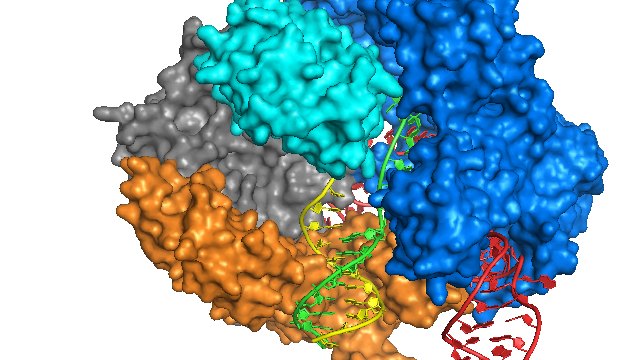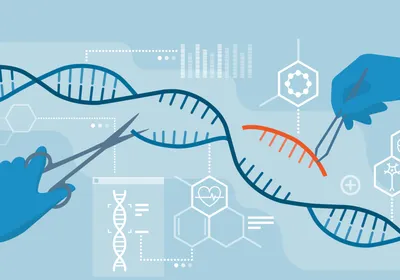 WIKIMEDIA, CAS9 WIKI PROJECTFollowing closely on the heels of the discovery of several proteins that can block CRISPR-Cas9 activity in human cells, researchers from the University of California, San Francisco, report yet more anti-CRISPRs, in a study published in Cell today (December 29). Joseph Bondy-Denomy of UCSF and colleagues demonstrate how two such inhibitors can stop CRISPR gene editing activity in both bacterial and human cells, by impeding the Cas9 enzyme from Streptococcus pyogenes.
WIKIMEDIA, CAS9 WIKI PROJECTFollowing closely on the heels of the discovery of several proteins that can block CRISPR-Cas9 activity in human cells, researchers from the University of California, San Francisco, report yet more anti-CRISPRs, in a study published in Cell today (December 29). Joseph Bondy-Denomy of UCSF and colleagues demonstrate how two such inhibitors can stop CRISPR gene editing activity in both bacterial and human cells, by impeding the Cas9 enzyme from Streptococcus pyogenes.
“The next step is to show in human cells that using these inhibitors can actually improve the precision of gene editing by reducing off-target effects,” said coauthor Benjamin Rauch, a post-doc in Bondy-Denomy’s lab, in a press release. “We also want to understand exactly how the inhibitor proteins block Cas9’s gene targeting abilities, and continue the search for more and better CRISPR inhibitors in other bacteria.”
The researchers found these Cas9 blockers by searching bacterial genomes for both a CRISPR sequence and its target, under the assumption that the genome likely contained an inhibitor to prevent CRISPR from cutting that target in the bacterium’s own genome. Indeed, Rauch and colleagues uncovered several anti-CRISPRs in Listeria whose sequences had been left behind in the bacterial genome ...





















